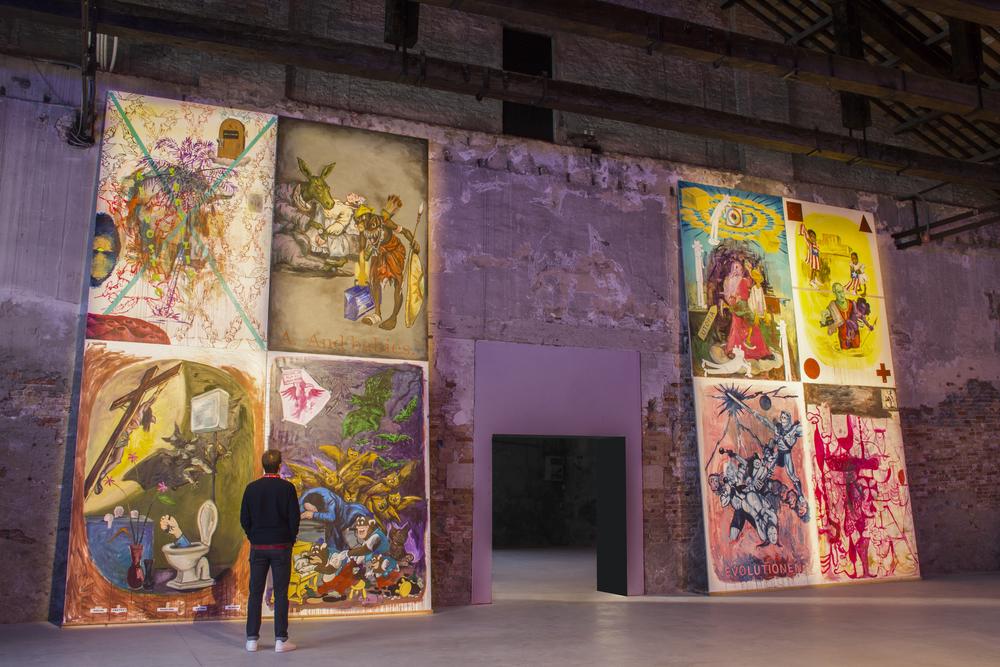Manuel Ocampo. Art History, Pop Culture, and Satire at the Venice Biennale

By the late 1990s, Manuel Ocampo had become internationally known for his unapologetic paintings invoking the sanctity of Catholic imagery with the legacy of Spanish colonial violence on the Philippines. After living in Los Angeles and Rome, he moved to Seville, Spain, where his work shifted from using iconoclastic motifs to pop culture imagery. In his paintings for Torta Imperiales (2017), layered references to Disney movies, heavy metal music, Balikbayan boxes that are used by Filipino migrants to send goods back home, and US President William McKinley—whose 1989 Spanish-American War annexed the Philippines from Spain’s colonial rule—address contemporary colonial trauma.1 The Torta Imperiales paintings, along with earlier works by the artist, were included in The Spectre of Comparison, an exhibition of work by Ocampo and Filipino-Canadian artist Lani Maestro for their representation of the Philippines at the 57th Venice Biennale in 2017.
Manuel Ocampo, interview on the occasion of The Spectre of Comparison exhibition for the Philippine Pavilion, 57th Venice Biennale, 2017 (posted January 20, 2019), video by Mickey Mayer, 3:38 minutes, available at youtu.be/P3T8bwBUKfI. ↩︎